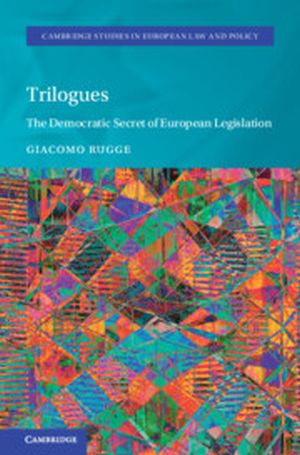We are now closed for the Christmas and New Year period, returning on Monday 5th January 2026. Orders placed during this time will be processed upon our return on 5th January.

The events of the last ten years have shaken the “permissive consensus” that kept the European integration process going for many years. 'Output democracy', as based on decisions presumably meeting the needs of the citizens, is no longer enough to obtain public support. Never before has a process-oriented approach to European democracy been more urgent. This book aims to address this urgency, by providing an account of the European legislative process that is less conventional and does justice to the democratic potential inherent in trilogues. In particular, this book provides: a comprehensive reconstruction of the workings of trilogues, relying on internal documents collected through a series of access to documents requests; gives meaning to the legal notion of informality, understood as one of the most defining, although elusive, features of trilogues; squares the practice of trilogues with the European democratic order of the Treaties, showing that such a practice is compatible with a model of 'negotiation democracy'.